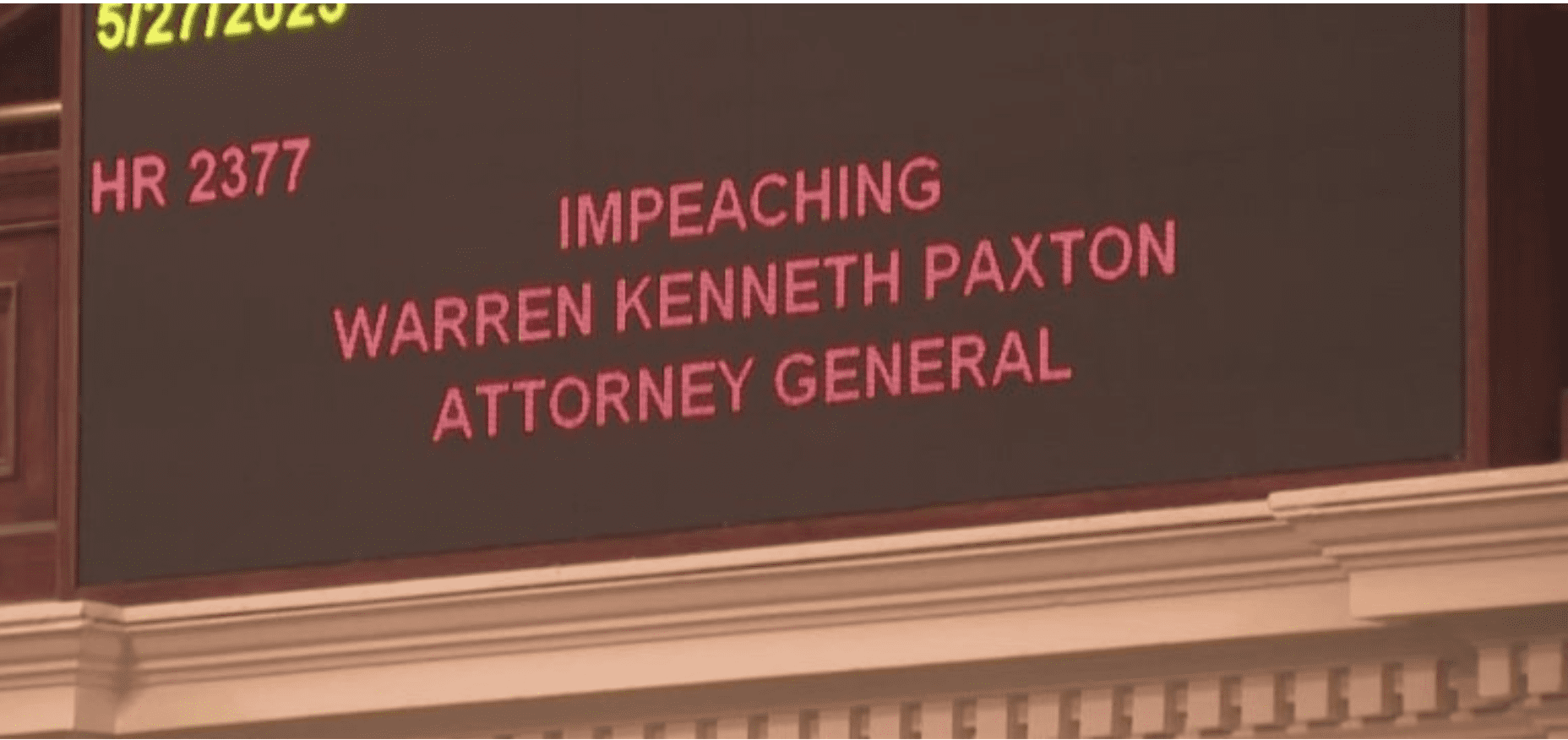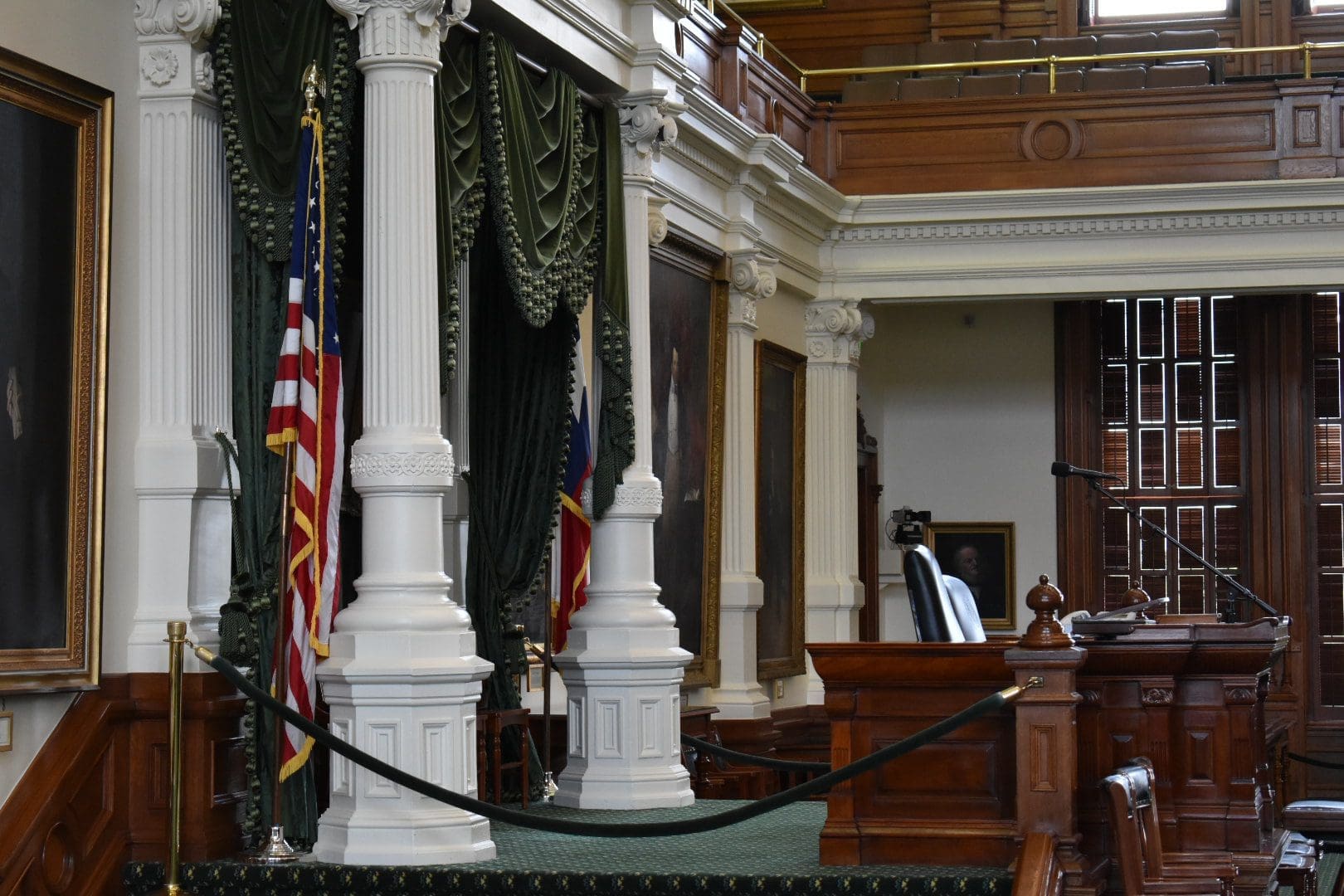Heading into 2023, capitol observers expected lawmakers to grapple with issues like school choice, protecting children, and border security.
Few, if any, would have expected the state’s recently re-elected attorney general to be impeached by the Texas House with less than 48 hours notice. And yet, that’s exactly what happened.
The process for Attorney General Ken Paxton’s impeachment began in March of this year when the House General Investigating Committee tasked a group of investigators with looking into Paxton.
Their report largely rehashed the ongoing indictment of Paxton on securities fraud charges that have been likened to a “political prosecution” for eight years and have been the focus of multiple campaigns.
The main focus of the investigator’s report was a settlement reached with four former employees of the Office of the Attorney General who say they were fired unfairly.
In October 2020, eight of Texas Attorney General Ken Paxton’s top aides accused him of bribery and abuse of office. After being terminated from employment, four of the employees filed a whistleblower lawsuit against Paxton, where they alleged that Paxton did political favors for Nate Paul, a real estate developer and donor, by having his office intervene in his legal disputes.
Just days after the report was presented, the House met in a Saturday meeting over Memorial Day weekend and voted 121-23 to impeach Paxton on 20 charges of misapplication of public resources, bribery, obstruction of justice, abuse of public trust, and disregard of official duties.
Sixty-one Democrats and 60 Republicans supported the impeachment, including House Speaker Dade Phelan.
With that rushed vote, the issue was sent over to the Senate, which last held an impeachment trial for a statewide official in 1917 for Gov. James “Pa” Ferguson. He was found guilty and removed from office by a vote of 25-3.
For nine days, the Senate held a trial to determine whether to convict Paxton. And when the case was finally presented, it crumbled under the lightest scrutiny.
One whistleblower, Ryan Vassar, admitted to having no evidence when reporting Paxton to the FBI. Another, David Maxwell, said he made claims to House investigators and didn’t know whether they were true or not.
This led to Tony Buzbee, one of Paxton’s attorneys, referring to the whistleblowers as “disgruntled ex-staffers.”
“There is shame here, and the shame sits right there that they would bring this case in this chamber with no evidence. If this could happen to him, it could happen to anyone,” said Buzbee.
The defense also noted that some of the whistleblowers refused to investigate the FBI, saying it would be “insane.”
The Bush family’s connection to the case was also invoked.
Several of the whistleblowers have maintained legal representation by Johnny Sutton. Sutton was an advisor to George W. Bush when he served as Texas governor and was later appointed to be a U.S. attorney when Bush was in the White House.
When asked how much they were paying Sutton, two of them admitted to never being billed for three years.
George P. Bush, who ran against Paxton in 2022, reactivated his law license at the same time the whistleblowers went to the FBI. He went on to lose to Paxton in the runoff primary election last year.
“The Bush era in Texas ends today,” declared Buzbee.
When the vote was taken, Paxton was acquitted on all charges by the Senate.
While 21 votes, or two-thirds, were required to convict and remove Paxton from office on any single charge, none received even a majority vote.
Lt. Gov. Dan Patrick had strong words for the House who brought the charges forward.
“Millions of taxpayer dollars have been wasted on this impeachment. Thirty-one Senators and a large Senate staff that made this trial possible have put their family life, jobs, and businesses on hold for three months after being here already from January to June,” Patrick added.
To that end, Patrick requested an audit of both chambers’ expenses. To date, the House has not provided their full impeachment costs.
Following the acquittal, the Republican Party of Texas condemned the impeachment and called on Speaker Phelan to resign.
Paxton, meanwhile, has set his sights on the upcoming primary election, endorsing challengers to Republican House members who supported his impeachment.
In addition to endorsing candidates, Paxton also says he will be touring the state in support of these challengers to incumbents he says are “some of the most liberal Republican politicians in the nation.”
With the Republican primary election on March 5, 2024, those members will have to answer to their voters.
No ads. No paywalls. No government grants. No corporate masters.
Just real news for real Texans.
Support Texas Scorecard to keep it that way!





